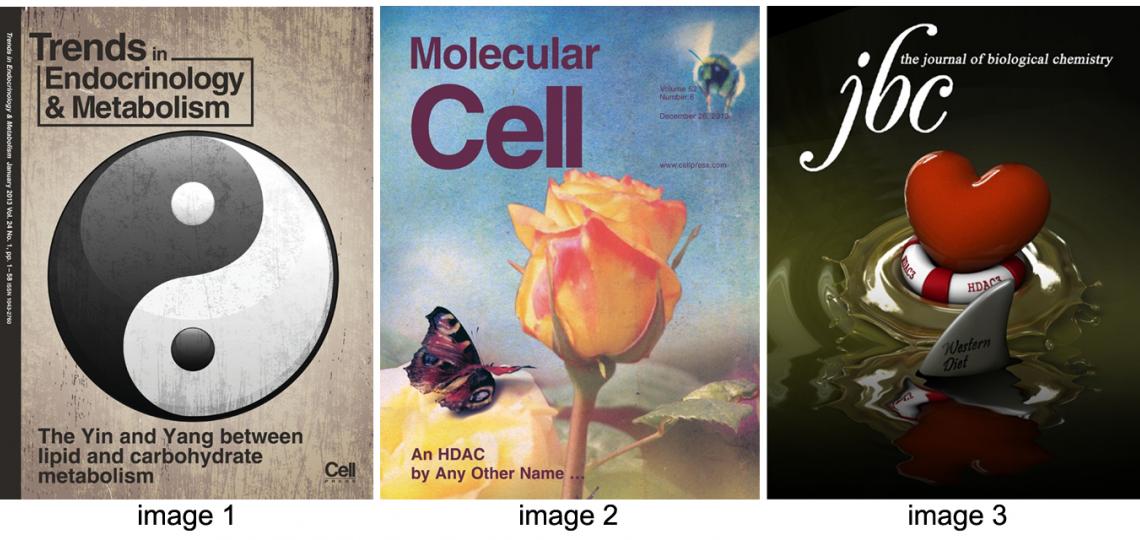About the Lab
What doesn't kill you makes you stronger. Hormesis, the paradoxical beneficial effect of low-dose stressors, can be elicited by reactive oxygen species, chemical toxins, calorie restriction, and physical exercise. Timing is everything in resilience. Intermittent exposure can generate opposite effects compared with continuous exposure. Early-life stress can increase resilience in later life and lack of stress can lead to vulnerability. An initial exposure can elicit an adaptive stress response with long-term epigenomic changes that anticipate subsequent exposures.
We are interested in how energy metabolism and neurocognition are regulated at the epigenomic level by the environmental factors including diet, physical exercise, hormones, and the circadian clock. We apply multi-omics approaches, optogenetics, chemogenetics, single-cell techniques, genome editing, novel viral vectors, metabolic tracing, neuronal tracing, and neurobehavioral tests.

Publication Covers
Image 1: Cover art at Trends in Endocrinology & Metabolism (Permission from Elsevier )
Image 2: Cover art at Molecular Cell (Permission from Elsevier)
Image 3: Cover art design submitted for Journal of Biological Chemistry (Credit: Lily Guo)
Zheng Sun Lab
Baylor College of Medicine
One Baylor Plaza
Houston, TX 77030
Phone: (713) 798-3164
Fax: (713) 798-4585
Email: zheng.sun@bcm.edu
Zheng Sun, Ph.D.
Principle Investigator
View Dr. Sun's bio.







 Credit
Credit
